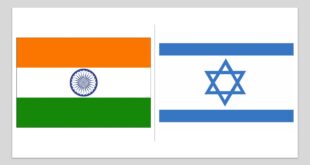- Five years after the Supreme Court allowed foreign law firms and foreign lawyers to visit India on a temporary period for giving legal advice to their clients, the Bar Council of India (BCI), a statutory body governing legal practice in India, has framed Rules that allowed them to open offices in India.
What did the Supreme Court say?
- On March 13, 2018, a division bench of Justices A.K. Goel and U.U. Lalit had ruled that foreign law firms or foreign lawyers cannot practise law in the country either on the litigation or non-litigation side.
- However, the court said that there was no bar on foreign law firms or foreign lawyers visiting India for a temporary period for giving legal advice to their clients. The court had also asked the BCI to make appropriate rules in this regard.
What are the Rules?
- On March 10, the BCI notified the Rules for Registration and Regulation of Foreign Lawyers and Foreign Law Firms in India, 2022.
- This will enable foreign lawyers and law firms to practise foreign law, international law, international arbitration, joint ventures, mergers and acquisitions, intellectual property matters etc on a reciprocal basis.
- The Rules mention, “This would also help to address the concerns expressed about the flow of Foreign Direct Investment into the country and would help make India a hub for international commercial arbitration.
- Foreign lawyers and firms have to submit an undertaking that they shall not practise Indian law in any form or before any court of law, tribunal, board or any other authority legally entitled to record evidence on oath”.
- The legal fraternity in India is not likely to suffer any disadvantage in case law practice in India is opened up to foreign lawyers in a restricted and regulated manner.
- This is mainly because the principle of reciprocity in the Rules ensures that it would be mutually beneficial for lawyers from India and abroad.
What powers does the BCI have?
- For foreign lawyers and firms to practise in India, a primary qualification is required in the form of a certificate by a competent authority of their country which states that they are entitled to practise law in that country.
- Their registration in India with the BCI is mandatory and must be renewed every five years.
- Moreover, the BCI has the right to refuse to register any foreign lawyer or law firm if it is likely to become disproportionate to the number of Indian lawyers or law firms registered or allowed to practise law in the corresponding foreign country.
What are the implications?
- Nihas Basheer, Partner Banking & Finance, Wadia Ghandy & Co., states that “Some clarity is required around what ‘reciprocity’ means before we see foreign law firms registering in India.
- If the foreign law firms do set up, it would be huge for the corporate legal practice in India as competition can only lead to improvement in legal services”.
- Advocate Abhay Nevgi states that, “Foreign law firms will now be allowed to hire Indian lawyers and advocates registered as foreign lawyers, expanding the legal job market. This move will definitely bring in AI (artificial intelligence) based technology into legal service delivery, pushing the Indian law firms to adopt.”
- However, advocate Sudha Bharadwaj feels this will lead to lawyers deserting the real need in India.
- “This is going to add to the “corporatisation” of law practice. Already we find that students burdened with high fees of private colleges are turning away from litigation and joining corporate firms.
- We will see more Indian lawyers going abroad and deserting the real need in India — defending and fighting for the rights of the poor.”
India’s stand on same-sex marriage
- A Bench led by Chief Justice of India referred petitions to legally recognise same-sex marriages to a Constitution Bench of five judges of the Supreme Court.
- The Court has been hearing multiple petitioners’ requests for legal recognition of same-sex marriages under the Special Marriage Act, 1954.
- The petitioners cited the Special Marriage Act, 1954, which provides a civil marriage for couples who cannot marry under their personal law, and appealed to the Court to extend the right to the LGBTQIA+ community, by making the marriage between any two persons gender neutral.
Why does the community want this right?
- The LGBTQIA+ couples do not enjoy the rights of married couples.
- For example,
- LGBTQIA+ couples cannot adopt children or have a child by surrogacy;
- they do not have automatic rights to inheritance, maintenance and tax benefits;
- after a partner passes away, they cannot avail of benefits like pension or compensation.
- In Navtej Singh Johar (2018), homosexuality was decriminalized and section 377 was struck down by the Court.
- The Centre has opposed same-sex marriage.
- The government said that decriminalisation of Section 377 IPC does not give rise to a claim to seek recognition for same-sex marriage.
- After the K.S. Puttaswamy verdict (2017) which upheld the right to privacy and Navtej Singh Johar (2018) that decriminalised homosexuality, there was hope that same-sex marriages would be legalised, but that has not been the case, prompting many couples to move court.
Overall status of same-sex marriage in India:
- India does not recognise registered marriage or civil unions for same-sex couples.
- Though same-sex couples can attain rights and benefits as a live-in couple.
- A single case of legal recognition of a same-sex marriage was granted by the Punjab and Haryana High Court in 2011.
- In 2022 a private member’s bill was introduced to legalize same-sex marriages under the Special Marriage Act, 1954.
SOURCE: THE HINDU, THE ECONOMIC TIMES, PIB
 Chinmaya IAS Academy – Current Affairs Chinmaya IAS Academy – Current Affairs
Chinmaya IAS Academy – Current Affairs Chinmaya IAS Academy – Current Affairs

